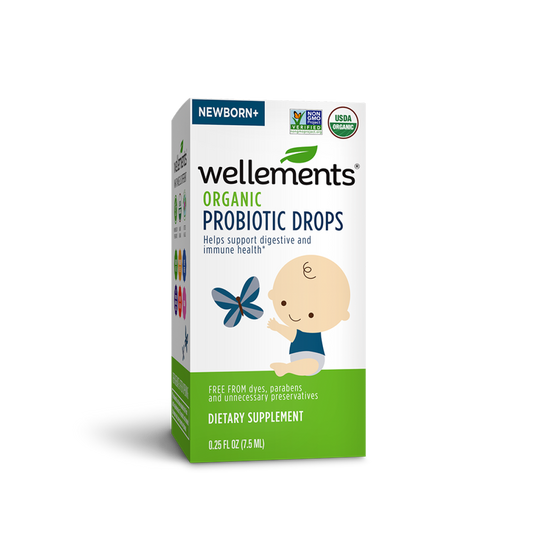Putting the Good Bacteria to Work for Your Baby
| updated:Share

As parents, we sure do spend a lot of time trying to protect our babies from bacteria. Baby-centric aisles at the store are packed with anti-bacterial soaps, hand sanitizers and entire lines of antimicrobial products that tug on the heartstrings – and pocketbooks – of well-intending parents.
A Probiotic Primer
While bad bacteria can certainly wreak havoc on our little ones’ systems, we should not underestimate the power of good bacteria for babies. All humans young and old house both good and bad bacteria.
You may be surprised to learn that your microbial community is established during the first few years of life. Factors such as gestational age at birth, delivery method, infant diet (formula vs. breast milk) and exposure to antibiotics all impact the microbiota of your gut.
Microbiota refers to the normal inhabitants of our digestive tract, which houses somewhere between 300-500 bacterial species that are made up of almost 2 million genes. Collectively this is referred to as the microbiome. And our babies’ microbiome is a really big deal. Striking a balance with our babies is an important consideration for establishing optimal digestive and immune health later in life. One way to help increase our body’s good bacteria – and, more importantly, our baby’s good bacteria – is to consume probiotics and prebiotics.
Probiotics refer to living microscopic organisms that can have health benefits. Probiotics are the actual “good” bacteria in your gut whereas prebiotics are the food that feeds the probiotics. Prebiotics are beneficial because they promote the growth of healthy bacteria over the harmful types.
3.8 /
5.0
(118)
118
total reviews
Probiotic Drops
Sale price
$29.99
Soothing a Baby with Good Bacteria
Crying is the number one cause of pediatric visits for infants under three months of age. It is estimated that up to 28 percent of infants are affected by colic. As a mother of infant quadruplets myself, I can tell you firsthand that statistic holds true in our household. Three of our babies (the boys) are perfect angels from whom you never hear a peep, but our dear sweet daughter has a catastrophic case of colic.
As a registered dietitian nutritionist, I knew about the benefits of probiotics for digestive health. But as a mom looking for a natural cure for crying, I was interested to learn that probiotics in babies can also help reduce colic. One study published in the Journal of the American Medical Association (JAMA) Pediatrics found that prophylactic use of probiotics during the first three months of life contributed to the prevention of colic and also helped improve digestive health. As a busy parent who wants what’s best for my kids, any product that can promote my baby’s digestive health and reduce crying (while at the same time preserving my sanity) has my vote!
Probiotics Perfectly Packaged
So if probiotics can help both digestive health and colic, how can we safely administer probiotics to infants? Wellements Probiotic Drops or Liquid Probiotic are great options for parents seeking an organic solution for both overall digestive health and colic. These products contains no preservatives, no alcohol or parabens and are gluten, dairy and soy free. There are no artificial ingredients and they are safe for your littles from day one.
3.8 /
5.0
(118)
118
total reviews
Probiotic Drops
Sale price
$29.99
With probiotics on board I feel like I am giving my baby her best shot at starting life out healthy and happy.
______________________



